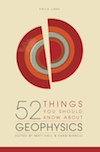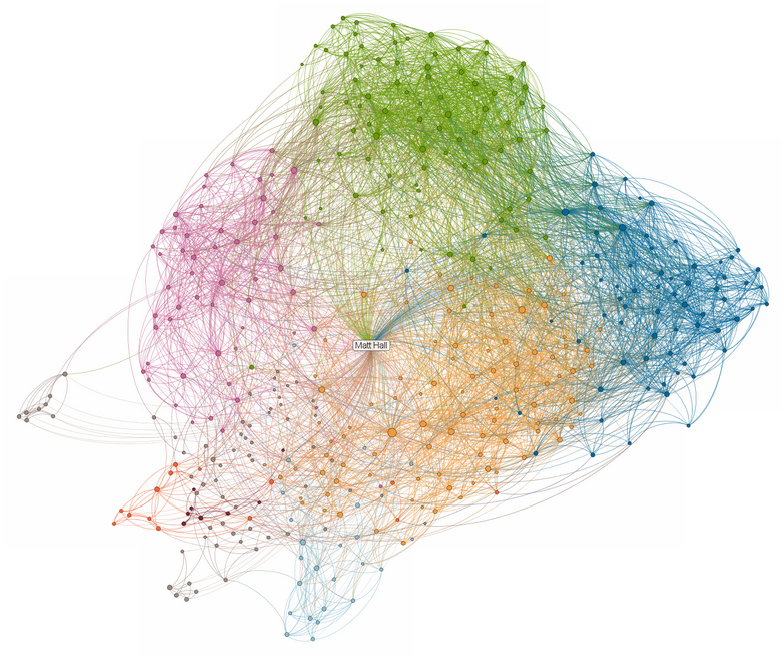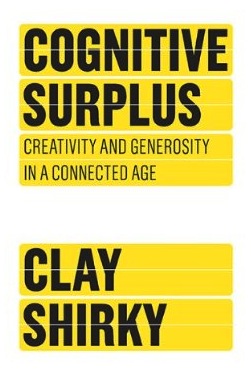This morning a friend of mine, Fernando Enrique Ziegler, a pore pressure researcher and practitioner in Houston, let me know about an "interesting" new book from Elsevier: Practical Solutions to Integrated Oil and Gas Reservoir Analysis, by Enwenode Onajite, a geophysicist in Nigeria... And about 350 other people.
What's interesting about the book is that the majority of the content was not written by Onajite, but was copy-and-pasted from discussions on LinkedIn. A novel way to produce a book, certainly, but is it... legal?
Who owns the content?
Before you read on, you might want to take a quick look at the way the book presents the LinkedIn material. Check it out, then come back here. By the way, if LinkedIn wasn't so damn difficult to search, or if the book included a link or some kind of proper citation of the discussion, I'd show you a conversation in LinkedIn too. But everything is completely untraceable, so I'll leave it as an exercise to the reader.
LinkedIn's User Agreement is crystal clear about the ownership of content its users post there:
[...] you own the content and information that you submit or post to the Services and you are only granting LinkedIn and our affiliates the following non-exclusive license: A worldwide, transferable and sublicensable right to use, copy, modify, distribute, publish, and process, information and content that you provide through our Services [...]
This is a good user agreement [Edit: see UPDATE, below]. It means everything you write on LinkedIn is © You — unless you choose to license it to others, e.g. under the terms of Creative Commons (please do!).
Fernando — whose material was used in the book — tells me that none of the several other authors he has asked gave, or were even asked for, permission to re-use their work. So I think we can say that this book represents a comprehensive infringement of copyright of the respective authors of the discussions on LinkedIn.
Roles and reponsibilities
Given the scale of this infringement, I think there's a clear lack of due diligence here on the part of the publisher and the editors. Having said that, while publishers are quick to establish their copyright on the material they publish, I would say that this lack of diligence is fairly normal. Publishers tend to leave this sort of thing to the author, hence the standard "Every effort has been made..." disclaimer you often find in non-fiction books... though not, apparently, in this book (perhaps because zero effort has been made!).
But this defence doesn't wash: Elsevier is the copyright holder here (Onajite signed it over to them, as most authors do), so I think the buck stops with them. Indeed, you can be sure that the company will make most of the money from the sale of this book — the author will be lucky to get 5% of gross sales, so the buck is both figurative and literal.
Incidentally, in Agile's publishing house, Agile Libre, authors retain copyright, but we take on the responsibility (and cost!) of seeking permissions for re-use. We do this because I consider it to be our reputation at stake, as much as the author's.
OK, so we should blame Elsevier for this book. Could Elsevier argue that it's really no different from quoting from a published research paper, say? Few researchers ask publishers or authors if they can do this — especially in the classroom, "for educational purposes", as if it is somehow exempt from copyright rules (it isn't). It's just part of the culture — an extension of the uneducated (uninterested?) attitude towards copyright that prevails in academia and industry. Until someone infringes your copyright, at least.
Seek permission not forgiveness
I notice that in the Acknowledgments section of the book, Onajite does what many people do — he gives acknowledgement ("for their contributions", he doesn't say they were unwitting) to some the authors of the content. Asking for forgiveness, as it were (but not really). He lists the rest at the back. It's normal to see this sort of casual hat tip in presentations at conferences — someone shows an unlicensed image they got from Google Images, slaps "Courtesy of A Scientist" or a URL at the bottom, and calls it a day. It isn't good enough: attribution is not permission. The word "courtesy" implies that you had some.
Indeed, most of the figures in Onajite's book seem to have been procured from elsewhere, with "Courtesy ExxonMobil" or whatever passing as a pseudolicense. If I was a gambler, I would bet that the large majority were used without permission.
OK, you're thinking, where's this going? Is it just a rant? Here's the bottom line:
The only courteous, professional and, yes, legal way to re-use copyrighted material — which is "anything someone created", more or less — is to seek written permission. It's that simple.
A bit of a hassle? Indeed it is. Time-consuming? Yep. The good news is that you'll usually get a "Sure! Thanks for asking". I can count on one hand the number of times I've been refused.
The only exceptions to the rule are when:
- The copyrighted material already carries a license for re-use (as Agile does — read the footer on this page).
- The copyright owner explicitly allows re-use in their terms and conditions (for example, allowing the re-publication of single figures, as some journals do).
- The law allows for some kind of fair use, e.g. for the purposes of criticism.
In these cases, you do not need to ask, just be sure to attribute everything diligently.
A new low in scientific publishing?
What now? I believe Elsevier should retract this potentially useful book and begin the long process of asking the 350 authors for permission to re-use the content. But I'm not holding my breath.
By a very rough count of the preview of this $130 volume in Google Books, it looks like the ratio of LinkedIn chat to original text is about 2:1. Whatever the copyright situation, the book is definitely an uninspiring turn for scientific publishing. I hope we don't see more like it, but let's face it: if a massive publishing conglomerate can make $87 from comments on LinkedIn, it's gonna happen.
What do you think about all this? Does it matter? Should Elsevier do something about it? Let us know in the comments.


















 Except where noted, this content is licensed
Except where noted, this content is licensed